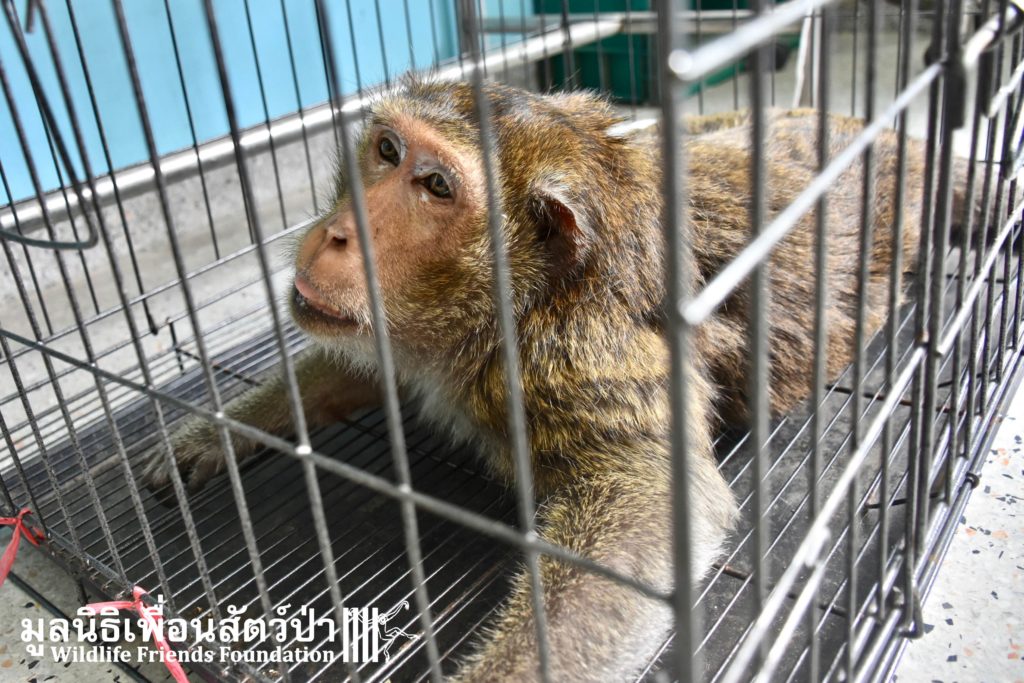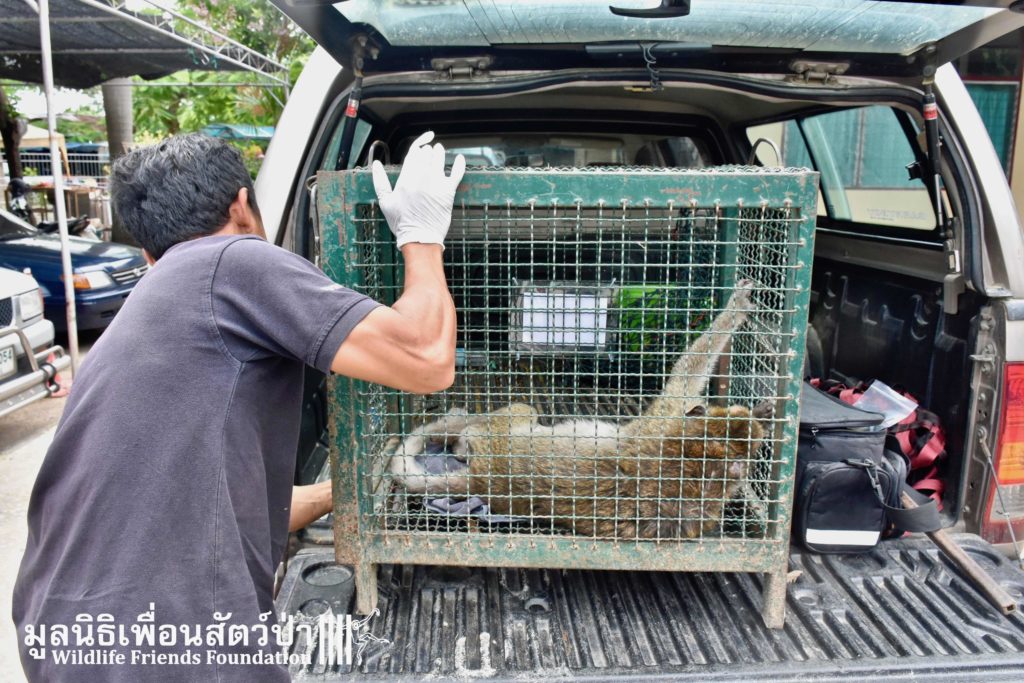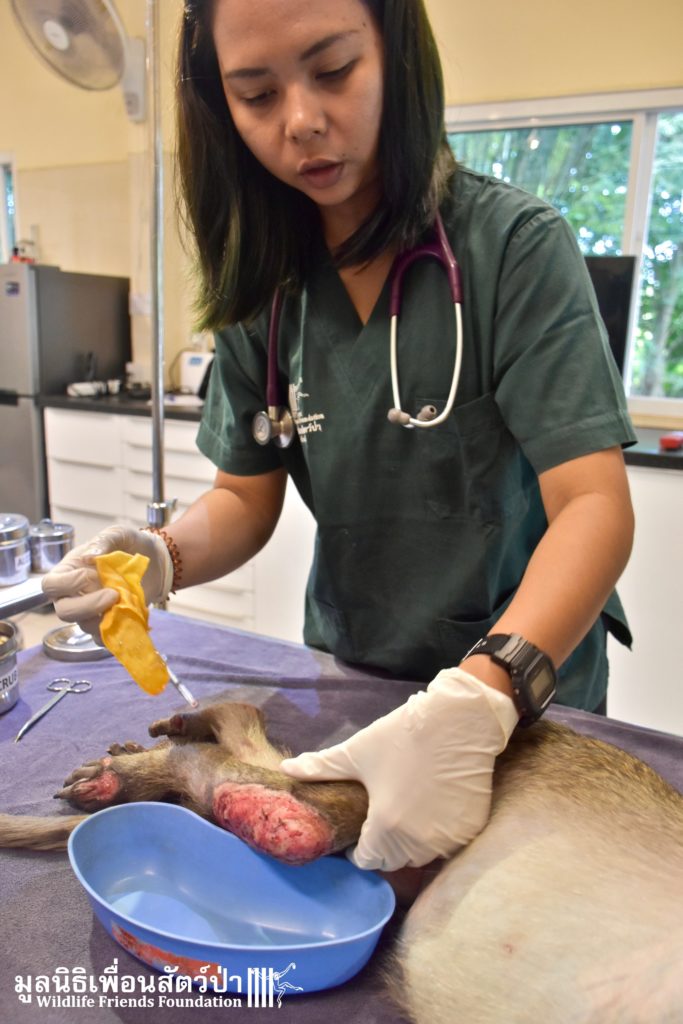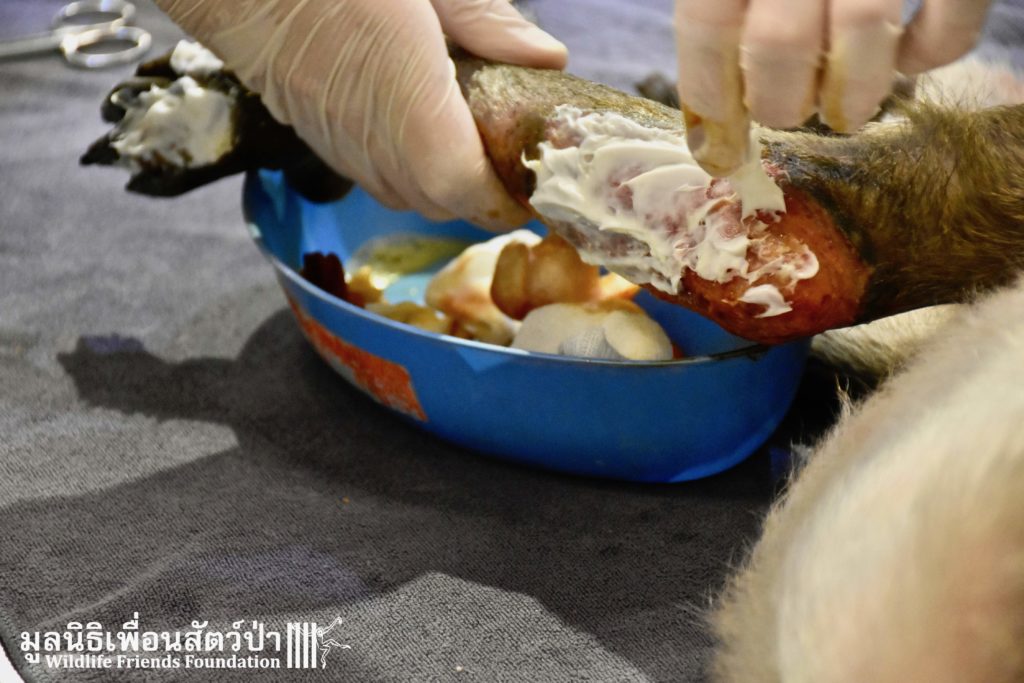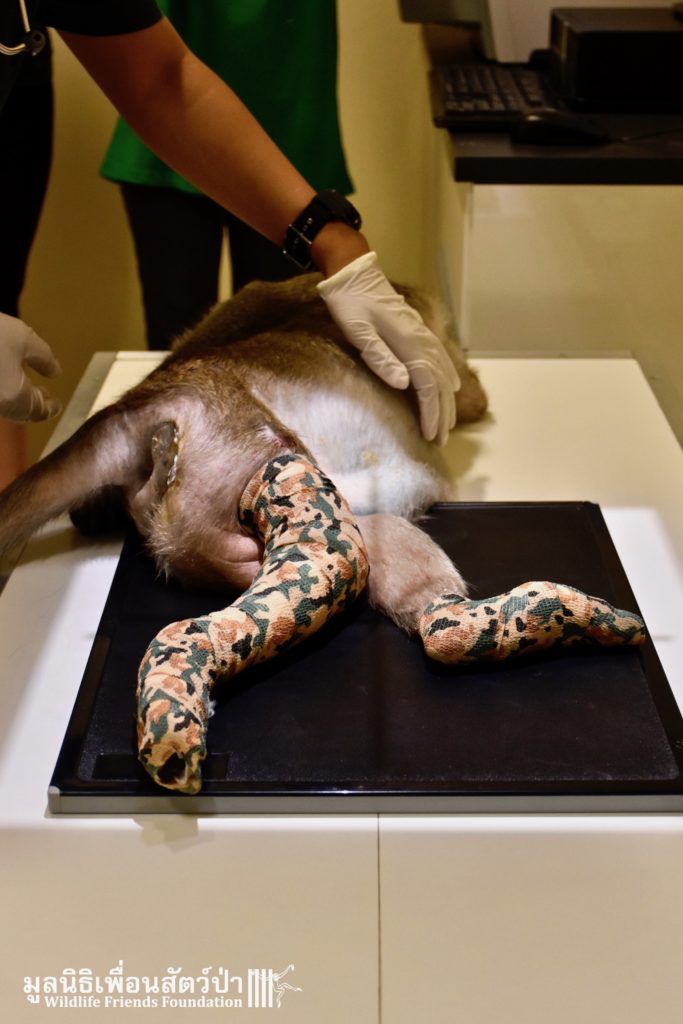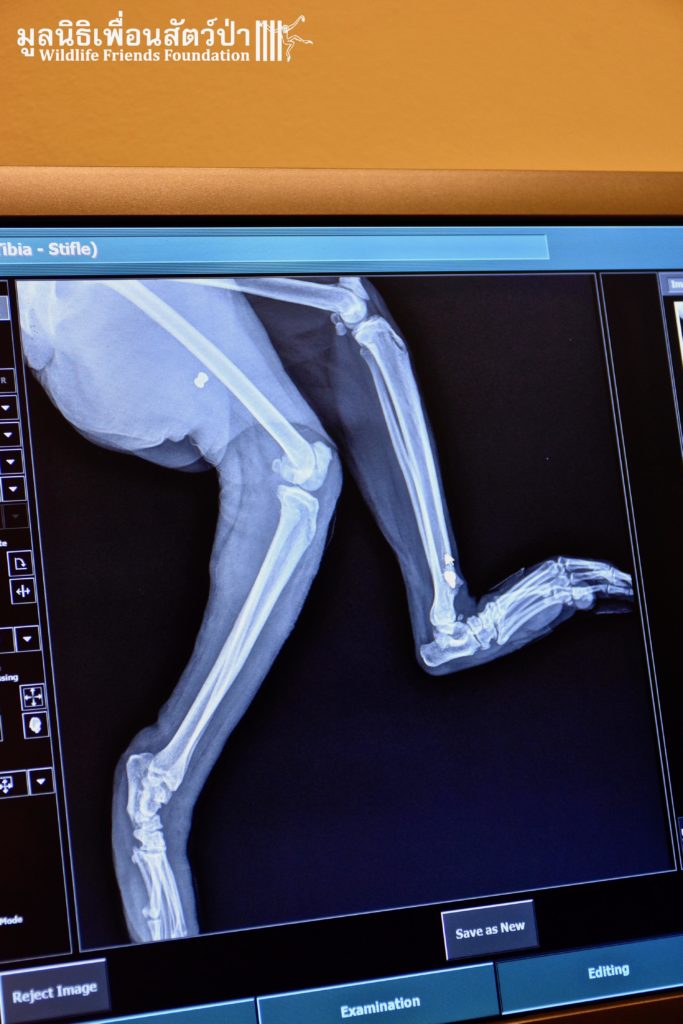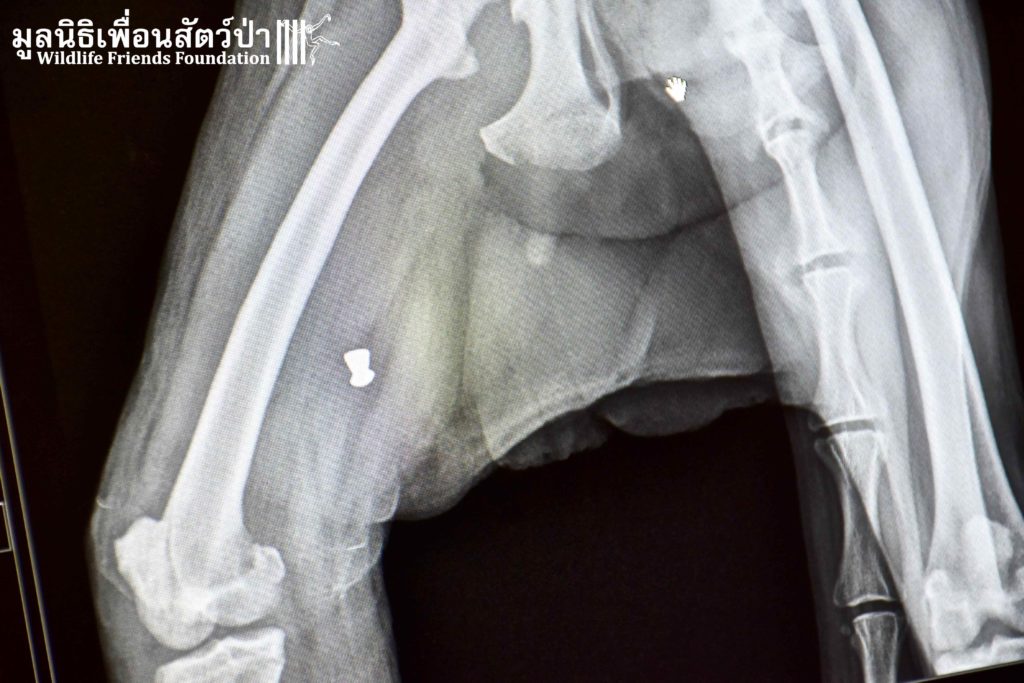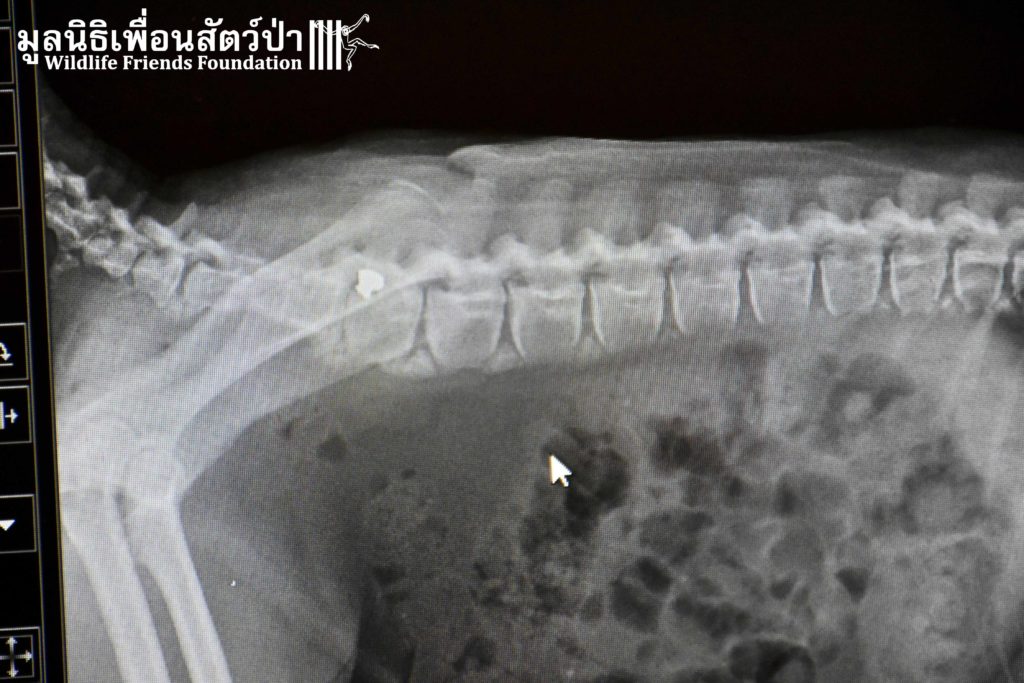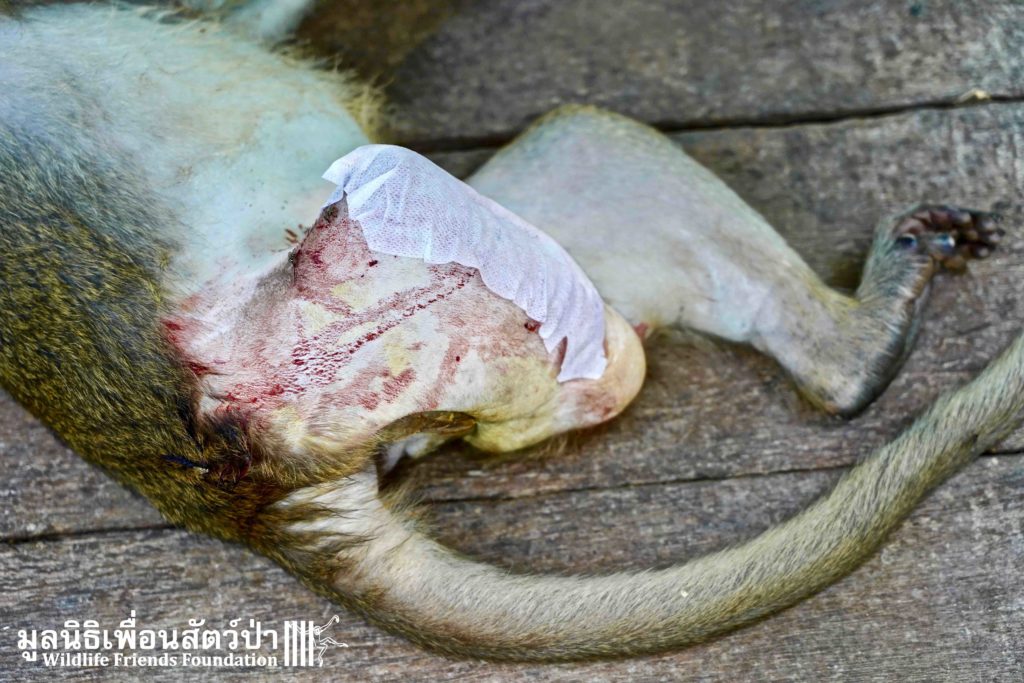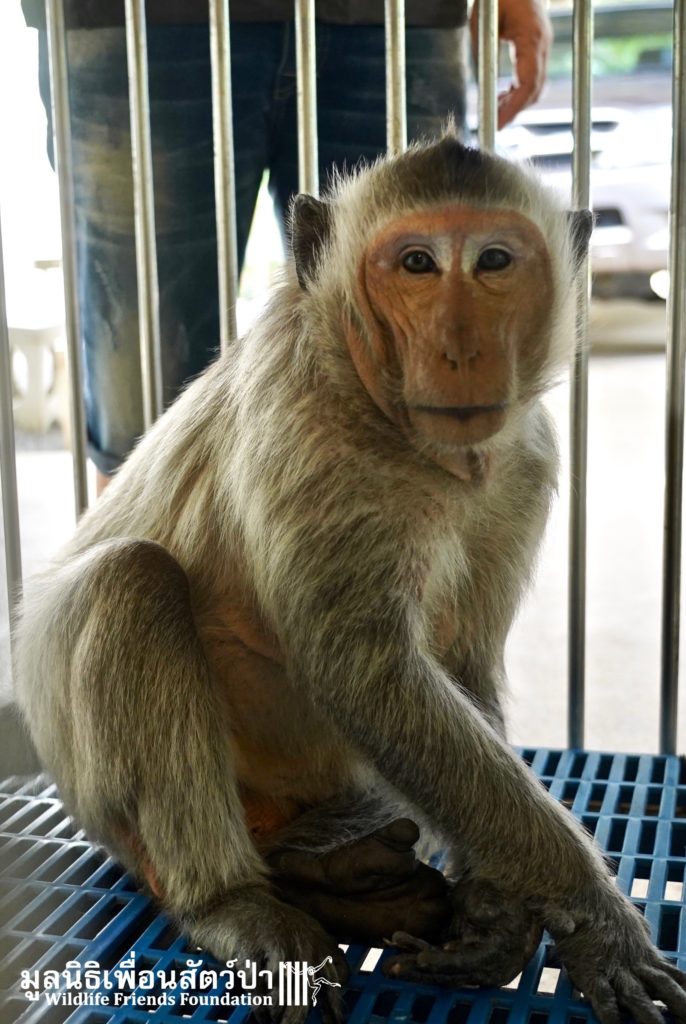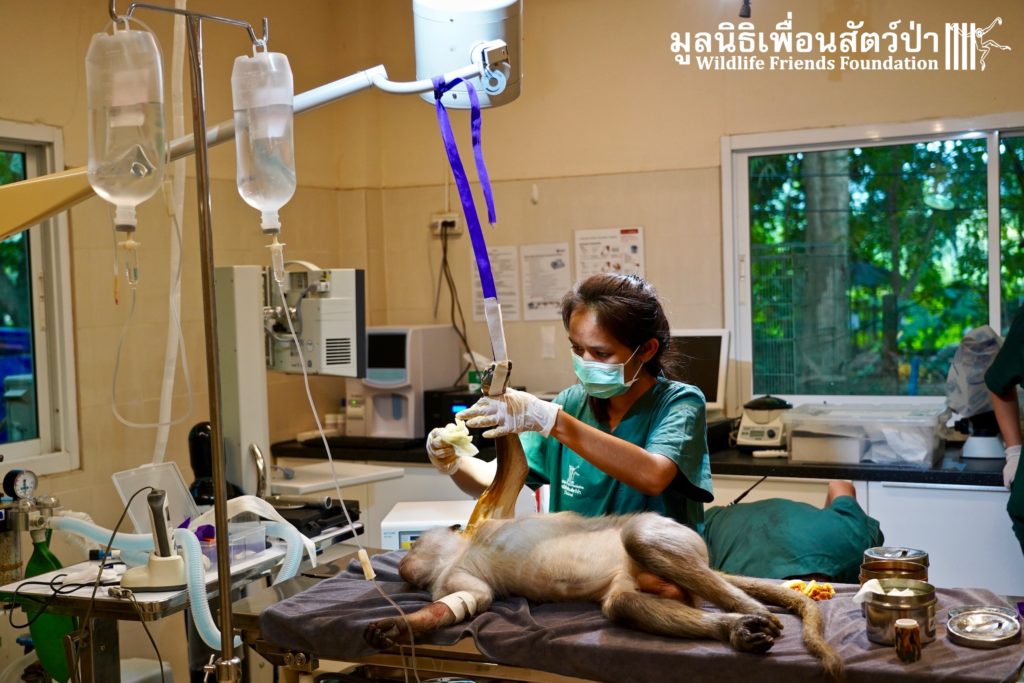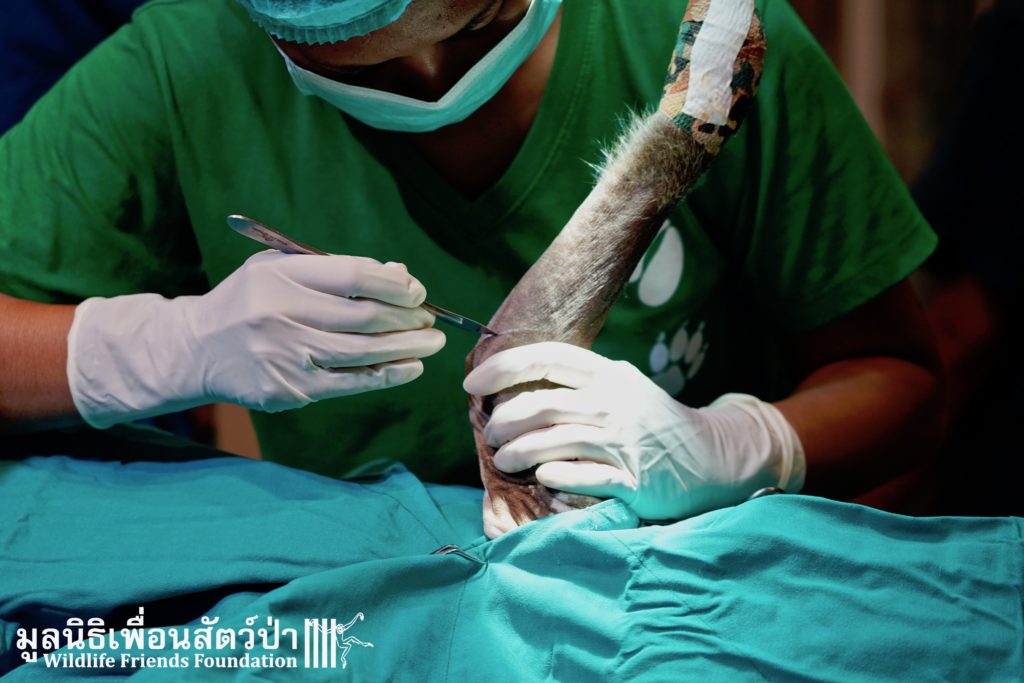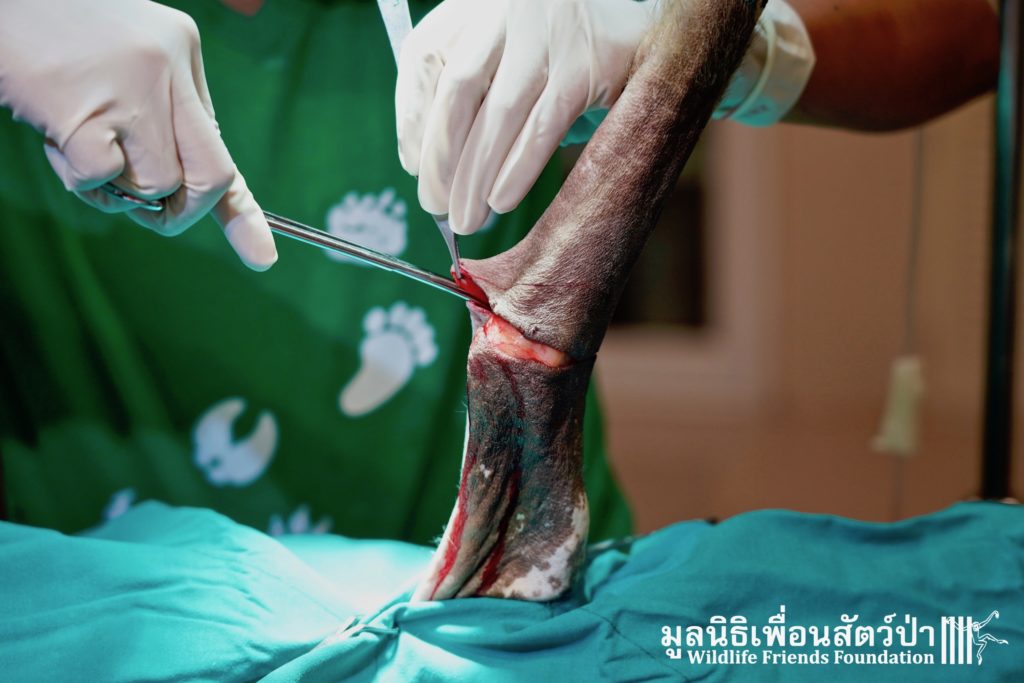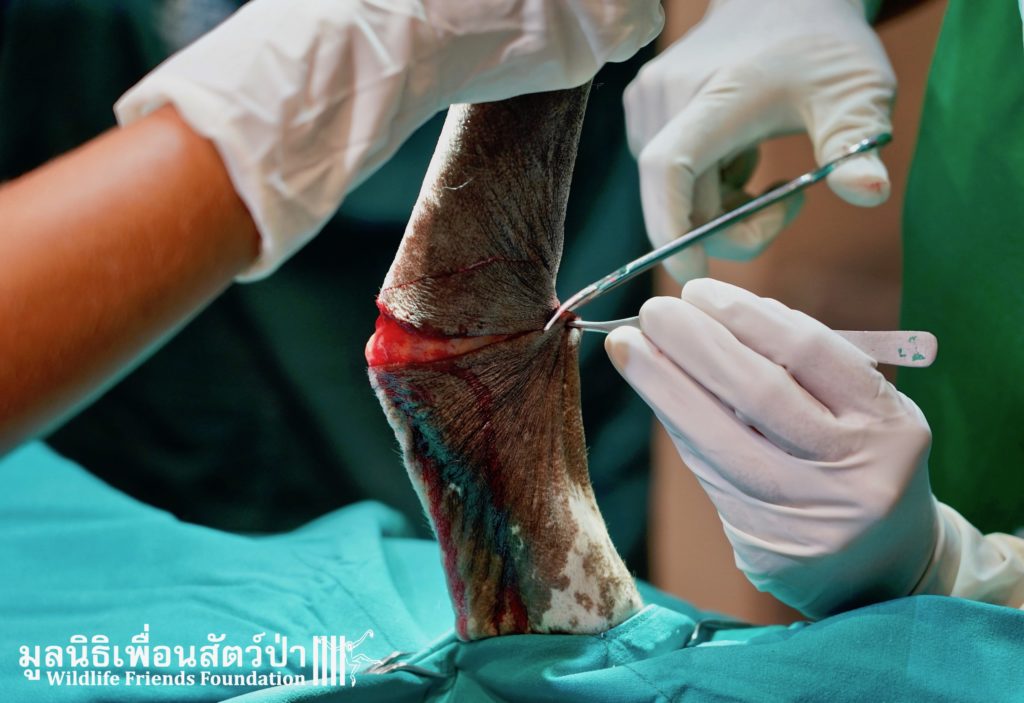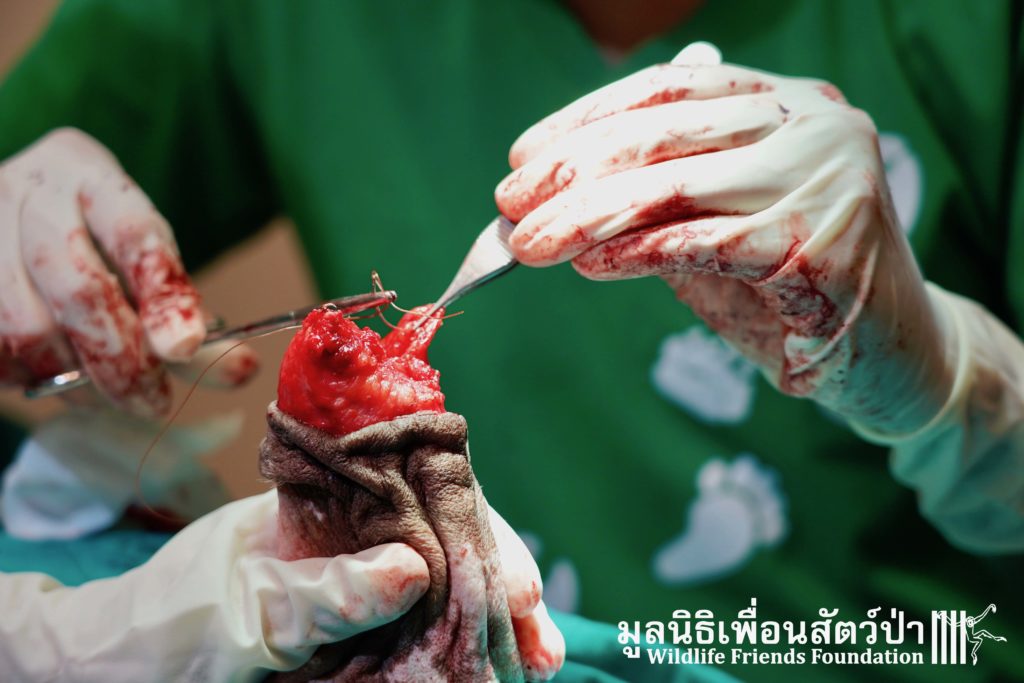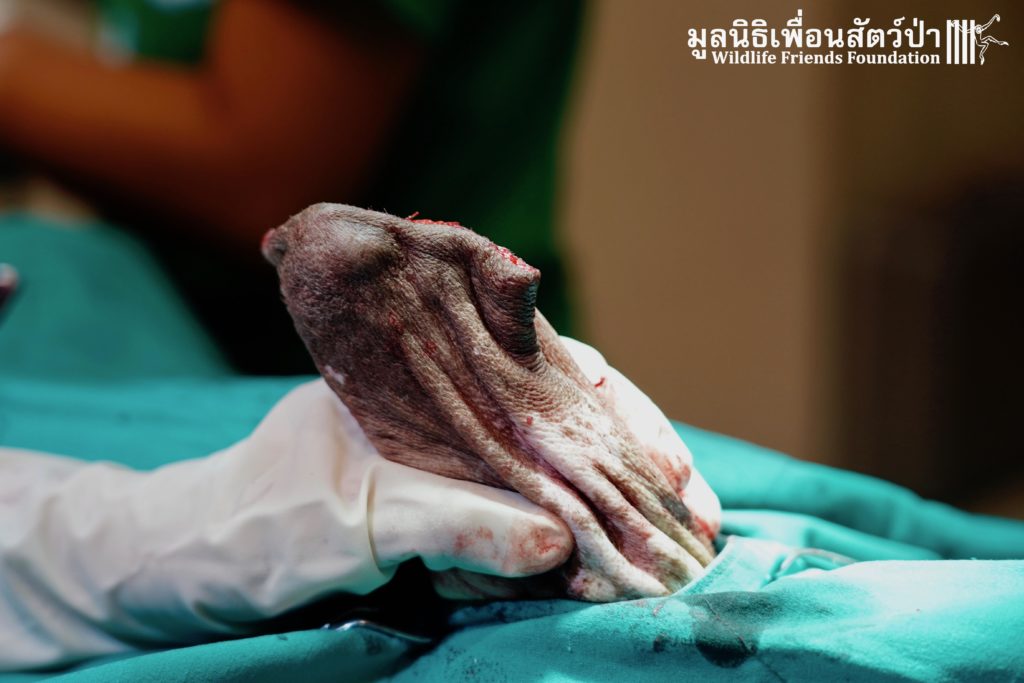After three weeks of dedicated care at the WFFT wildlife hospital, Wang, a wild long-tailed macaque from a local temple, successfully recuperated and was released back to his habitat.
2 Macaque Limb Amputations in One Day!
It was raining long-tailed macaques (Macaca fascicularis) in the hospital this week! Our first patient, Auan, arrived 2 months ago after being hit by a car. Although no breaks or dislocations were found, his radiographs revealed four old bullets lodged in his spine, thigh, ankle, and arm. His right leg suffered additional extensive abrasions from the car accident. Our hospital staff surmise that he has nerve damage that led to him painlessly dragging around his disabled limb, thus getting it infected. We decided to amputate this leg to avoid further complications. Because he is a large adult male, we are hopeful that he can be successfully released after he recovers and passes observation in quarantine.
Our second amputation of the day was of another long-tailed macaque, Bucky, who first came to us several months ago after falling out of a tree. He belongs to an urban macaque troop that is fed by a local community in Bangkok. They trapped and brought him to WFFT after noticing he had stopped using his arm. Once again, no breaks or dislocations were found in his radiographs but a fresh bullet wound was discovered in his disabled arm. It was removed and he was returned to his troop. However, he was brought back to WFFT this week because he still wasn’t using his arm. To avoid future risks of injury and sepsis, this arm was amputated after Auan’s leg amputation. After his recovery he will be returned to his troop in Bang Khun Thian, Bangkok.
The long-tailed macaque is listed as Least Concern (LC) by the IUCN Red list of Threatened Species, in view of its wide distribution, presumed large population, tolerance of a broad range of habitats, occurrence in a number of protected areas. Although it is under heavy hunting pressure for the pet trade, meat, sport and trophies, this is not considered a major threat to the species overall. Females are often taken into breeding facilities and males are exported internationally primarily for use in laboratory research. They are regularly persecuted as pests. Habitat loss is also a localised threat, but the species can persist in a variety of habitats and very adaptable.

